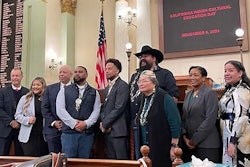The University of California, Berkeley, doesn’t have to reinstate a former untenured Native American faculty member although a jury awarded her damages for retaliating after she demanded reasonable accommodation for her physical disabilities, a unanimous state Court of Appeal panel has ruled.
It affirmed a lower-court finding that the university had reasonable grounds to deny tenure to Dr. Nimachia Hernandez and not to retain her as an assistant professor of ethnic studies.
Hernandez began teaching at the Department of Ethnic Studies in July 2000. A July 2003 car crash caused traumatic brain injury and other health problems that led to several months of medical leave. As a result, the university delayed her scheduled mid-career review from fall 2003 until spring 2005, and evaluated only the period from her appointment to the month before the accident.
The review praised her teaching evaluations and departmental service but found a “complete lack of evidence of research, scholarly productivity and/or creative work” and concluded that she had “poor” prospects for tenure, according to the decision.
The university gave her a 12-month notice of termination. In response, the student newspaper printed an open letter from a Berkeley resident calling termination a “gross injustice” and saying that “allegations of unproductiveness” were merely “an excuse used to mask the personal agendas of some self-appointed and so-called ‘native expert professors,’ department administrators and manipulated students who resent her high academic standards.”
The letter continued, “It is a blatant affront, not solely to Dr. Hernandez, but to the concerned Berkeley American Indian and disability challenged community, because healthy, non-American Indian professors have decided the fate of her collegiate teaching career.”
In part, Hernandez’s suit claimed that she faced frequent harassment, intimidation and other forms of hostility from department administrators, faculty and staff for requesting reasonable accommodation.
The university denied the allegations.
After Hernandez rejected a settlement offer of $300,000, the case went to trial. An Alameda County Superior Court jury determined that the university had illegally retaliated against her for seeking accommodation.
However, the jury rejected claims of disability and national origin discrimination and failure to actually accommodate her physical disabilities.
It awarded $266,347 in damages, which was less than the settlement offer.
The trial judge refused to order her reinstatement and awarded her $416,000 in attorney fees, far below the $2.66 million requested. The judge also ordered Hernandez to pay $83,414 for the university’s costs and expert witness fees after rejecting its settlement offer.
On appeal, Hernandez argued that reinstatement was necessary to “make her whole.”
In response, the university argued that the decision whether to reinstate a faculty member “goes to the very core of the university’s academic mission. One could hardly think of a better scenario in which deference should be given to the university than that of a decision as to the adequacy of a professor’s scholarship.”
In ruling against Hernandez, the three-judge appellate panel cited evidence of her poor scholarship and testimony showing she had created “a vitriolic and antagonistic work environment” that made reinstatement non-viable.
For example, the opinion by Justice Patricia Sepulveda quoted emails from Hernandez claiming that she was being “treated with hostility,” that administrators’ failure to support Native American studies contributed to “genocide” of the program, and that forcing her out was part of an “ethnic cleansing process.”
The court also refused to increase the attorney fees that UC Berkeley must pay Hernandez and to reduce the amount of court costs and expert witness fees she must pay the university.
The court rejected her petition for a rehearing on Dec. 27.
Her lawyer, Neil Eisenberg of San Francisco, called Hernandez “a superstar in ethnic studies” and a “national treasure,” adding that the jurors would not have awarded back pay if they didn’t believe she was professionally competent.
“The university was found guilty of violating federal law,” Eisenberg said. “It’s the saddest court case in the history of the United States in ethnic studies.”
A lawyer for the university, Michael Laurenson of San Francisco, described the Ethnic Studies Department as “challenging” and said Hernandez has been “a difficult person to deal with,” but the university did provide all the requested accommodation, such as voice-activated software and time.
The university has paid the judgment and there have been no other lawsuits involving the department, Laurenson said.


















